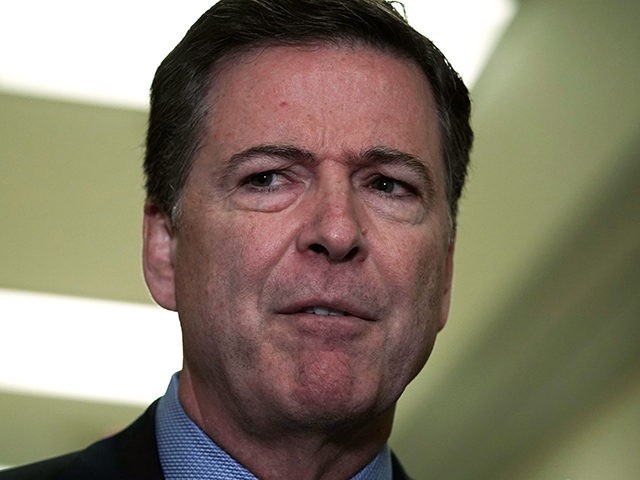After his FBI peddled the narrative that Russia interfered in the 2016 election specifically to help Donald Trump, disgraced former FBI Director James Comey conceded that Russia’s primary goals were first to cause election chaos generally and then to ensure the defeat of Hillary Clinton.
Russia’s third priority was to help Trump win the election, Comey stated.
Comey made the comments while speaking last Thursday at a CNN town hall event.
Here is the relevant portion of the transcript:
QUESTION: Hi, Director Comey. Having lived in Russia, I can tell you that the public opinion of President Trump there is lukewarm to negative at best. It also seems that the personal relationship between Putin and Trump has cooled. So personal collusion is pretty hard to buy into.
As such, do you think there are other Russian goals behind U.S. election interference beyond trying to destabilize our faith in American democracy and undermine our world leadership geopolitically?
COMEY: Well, they had three goals last election cycle, and Donald Trump was actually third on the list.
The first, as you said, was they want to dirty up this democracy so it’s not an example for other nations around the world.
Second, they wanted to hurt Hillary Clinton, who Vladimir Putin hated.
And last, they wanted to help Donald Trump, who even they weren’t sure could win the election.
Comey’s FBI was part of a January 6, 2017 U.S. Intelligence Community (IC) document assessing Russian interference efforts in the most recent U.S. presidential election. In the IC report, the NSA assessed the conclusion that Putin favored Trump and worked to get him elected only with a classification of “moderate confidence,” while the FBI and CIA gave it a “high confidence” rating.
A Republican House Intelligence Committee’s 250-page report on alleged Russian collusion released in April of last year raised questions about the “high confidence” assessment by the FBI and CIA, perhaps explaining why the NSA didn’t share the conclusion when it came to Russian intentions regarding Trump during the election.
The House report found that the IC assessment of Putin’s strategic intentions for allegedly interfering in the U.S. election to aid Trump “did not employ proper analytic tradecraft” and contained “significant intelligence tradecraft failings that undermine confidence” in the judgments, including the failure to “be independent of political considerations.”
Also, there is a different narrative on the topic in the 2018 book of James Clapper, who served as director of National Intelligence under the Obama administration. It was Clapper’s agency that released the Intelligence Community report.
As Breitbart News reported, Clapper’s recent book describes numerous shifts in Russia’s alleged attitude toward Trump during the 2016 presidential campaign.
At first, Clapper writes that Russia simply opposed Hillary Clinton and didn’t favor one Republican presidential candidate. After Trump seemed initially poised to possibly win, Clapper relates an alleged Russian propaganda effort to aid Trump’s victory in order to defeat Clinton. Toward the final stretch of the presidential campaign, with Trump’s poll numbers falling, Clapper wrote that Russia shifted its position away from aiding Trump and focused mainly on opposing Hillary, even allegedly providing Green Party candidate Jill Stein with more favorable coverage.
Aaron Klein is Breitbart’s Jerusalem bureau chief and senior investigative reporter. He is a New York Times bestselling author and hosts the popular weekend talk radio program, “Aaron Klein Investigative Radio.” Follow him on Twitter @AaronKleinShow. Follow him on Facebook.
Joshua Klein contributed research to this article.

COMMENTS
Please let us know if you're having issues with commenting.